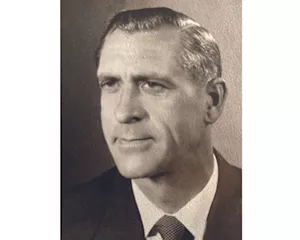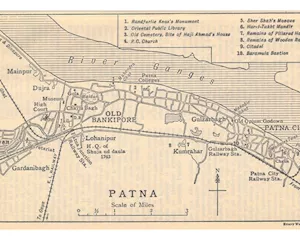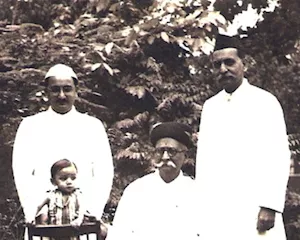GenNext mantra: Paper is the best tech tool of our time - The Noel D'Cunha Sunday Column
Five under forty paper specialists spotlighted what they are "doing differently" and how they were adding value. On 28 September, at the FPTA, they provided tips on how the paper industry can improve access to capital and deploy tech tools which are a must for cross-border and pan-India outreach. And finally, how to tackle myriad operational challenges in terms of scaling up and creating the next generation of industry superstars
30 Sep 2024 | By Noel D'Cunha
The Federation of Paper Traders' Association of India (FPTAI) hosted its 63rd annual general meeting (AGM) and Conference at the Rio Resort in Goa on 27 and 28 September 2024 which was attended by 850 delegates. The theme was RRR (Reimagining, Reinventing, Recycling).
A key session on day two was a panel discussion hosted by Ramu Ramanathan, editor of PrintWeek/WhatPackaging? with an ingenious and eclectic group of panellists which comprised Abiali Jani of Jani Sales, Chirag Jain of MLM Group, N Annamalai of Speciality Paper and Board, Pritesh Shah of Shah Paper Mills and Param Gandhi of Aryan Paper Group.
Ramanathan began by saying, "This panel is a celebration of the game-changers in the paper industry. We have selected five gentlemen for five reasons. Firstly, they offer a diversified portfolio, they have in-depth insights about both international and Indian markets. They boast of scale and possess deep pockets. Are redefining the way business was done in the 20th century. And finally, they are all leading a revival and re-boot within their respective organisations."
Over two days Team PrintWeek interacted with papers traders across, and two trends emerged. One, paper trade is grappling with the consequences of a volatile market; plus they bemoan the lack of a solid future. Which is why the 100-minute panel discussion was attended in rapt attention.
The panellists spotlighted what they were "doing differently" and how they were adding value. Also they dwelled upon how the stakeholders in the paper industry can improve access to capital plus what are the tech-tools which are required to expand cross-border and pan India outreach. And finally, ensuring continued education and guidance to founders and entrepreneurs so that they can tackle a myriad financial and operational challenges in terms of scaling up; and creating the next generation of industry super stars.
Jani discussed his company's investments in renewable energy and water treatment as part of their sustainability efforts. He said, "We've heavily invested in wind and solar power, as well as advanced water treatment systems, to reduce our environmental footprint." He added, "India is not a major player in the global pulp market. There is a pressing need to explore alternative solutions, such as agro-pulp and plantation approaches, to reduce our reliance on natural forests for pulp production."
The panellists' insights underscored the multifaceted nature of sustainability in the paper industry. From product innovation and operational efficiency to stakeholder engagement and brand-building, these leaders are redefining what it means to be a sustainable business.
As Shah stated, "Sustainability is about more than just ticking boxes or following trends. It's about having the courage to challenge the status quo, to innovate, and to create products and services that truly make a difference." He added, "Paper is a 100% sustainable product, because we use three types of raw materials: wood pulp, agricultural residues, and waste paper, making it biodegradable, compostable, and recyclable.” He said, paper is a valuable asset to the GoI initiatives such as achieving 100% literacy and promoting a Clean and Green India.
How can gen-next thrive?
The paper industry is often perceived as a traditional, family-owned business landscape, and the panellists shed light on the unique challenges and opportunities surrounding the next generation's involvement.
Jani shared an anecdote that encapsulated the importance of instilling a shared vision within the organisation. "I was giving a presentation to a group of young children, and one of them asked me about the recycling process for paper," he recounted. "How he engaged with the topic showed me that the next generation is already aware and interested in our industry. We just need to ensure that we nurture that passion and embed our vision in their minds."
Annamalai echoed this sentiment, emphasising the need for a collaborative approach to engaging the next generation. "Our business should have a clear vision, and we need to ensure that this vision
Jain highlighted the importance of adapting to the changing mindset of the next generation. "My father always told me that you have to be a friend to the new generation, to understand their comfort and their way of thinking," he explained. "We can't just expect them to follow the traditional business methods. We need to show them the value and the impact they can create."
Shah emphasised the need for a gradual, hand-holding approach to the leadership transition. "Many of our fellow traders have built their businesses from scratch, and they tend to hold on to that very closely," he said. "But we need to ensure that the transition to the next generation is smooth, where they feel empowered and involved in the decision-making process."
Gandhi challenged the notion that the next generation is not interested in the paper industry. "There is a myth that younger people are not interested in our industry, but I don't believe that's the case," he said. "If we can show them the potential for innovation, sustainability, and making a real impact, I'm confident we can attract and retain the best and brightest talent."

GenNext grows up: The paper trade in the 21st century
The panellists' insights underscored the importance of adapting to the changing aspirations and expectations of the next generation. Rather than relying on traditional hierarchies and top-down approaches, these industry leaders emphasised the need for open communication, collaborative decision-making, and a willingness to embrace new ideas and perspectives.
Jani asked why is this question even asked, because he said, there are so many young faces in the audience, who are already in the business. He added, "I believe that the younger generation should be given the freedom to make mistakes and learn, rather than being overly controlled by the older generation. This will allow them to contribute better and take the business to new heights."
Mission paper
The panel discussion concluded with the five panellists being probed about what they would like to tell the finance minister of India if they were travelling with her on a flight.
Gandhi emphasised the need for government support, stating, "I would ask her to support the paper industry in every way possible, in terms of taxation and similar conversations."
Shah stressed the importance of the government not viewing the paper industry as a "polluting industry." He said, "We are a very green industry, and we need encouragement from the government. We need all the government's support to make it a world-class industrial sector."
Annamalai, representing the trading community, highlighted the need for greater security in the industry's credit-oriented operations. "I would like to ask for some sort of a mechanism where we can streamline it and have some safety on that because a majority of our trade is credit-oriented, and it's unsecured credit," he said.
Jain advocated for the paper industry to be accorded an industry status. Jani emphasised the importance of the government addressing the industry's banking and insurance challenges. He said, "I would appreciate the hard work by the finance minister, but some support on the banking side for a robust insurance bill will be helpful. Today, the bankers are not ready to fund beyond a particular credit for an export order."
As Nimesh Vora of the Paper Traders Association in Mumbai said, "This worrying dynamic will not simply reverse itself. There is no magic wand which will make our problems disappear." Vora, who had conceptualised the session said, "We thought about this session in order to reinvigorate the paper trade in India. The point is, we must create an atmosphere that supports innovation and where all paper businesses can thrive."
Vora summed up the session by saying it was "impressive because it provided an innovative blueprint in a simple manner." He said, "Lots of food for thought about strategy and advancements. We need to re-think almost everything we were told about the business in the 20th century. With things picking up, the timing of this panel discussion is a good tonic for the success of the paper industry."
He told the delegates to spread the good word among family, friends and customers with the mantra of the 100-minute discussion: "Paper is the best tech tool of our times."















 See All
See All